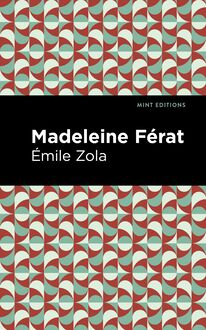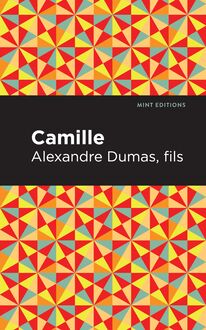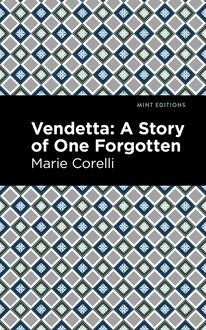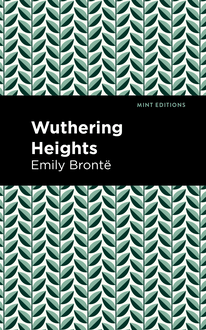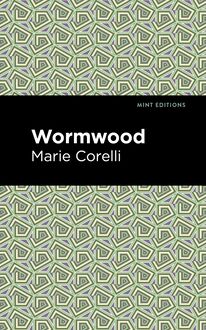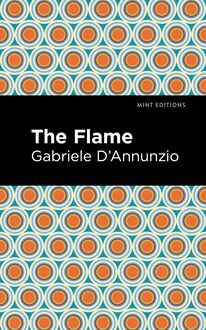-
 Univers
Univers
-
 Ebooks
Ebooks
-
 Livres audio
Livres audio
-
 Presse
Presse
-
 Podcasts
Podcasts
-
 BD
BD
-
 Documents
Documents
-
- Cours
- Révisions
- Ressources pédagogiques
- Sciences de l’éducation
- Manuels scolaires
- Langues
- Travaux de classe
- Annales de BEP
- Etudes supérieures
- Maternelle et primaire
- Fiches de lecture
- Orientation scolaire
- Méthodologie
- Corrigés de devoir
- Annales d’examens et concours
- Annales du bac
- Annales du brevet
- Rapports de stage
La lecture à portée de main
Vous pourrez modifier la taille du texte de cet ouvrage
Découvre YouScribe en t'inscrivant gratuitement
Je m'inscrisDécouvre YouScribe en t'inscrivant gratuitement
Je m'inscrisEn savoir plus
Vous pourrez modifier la taille du texte de cet ouvrage
En savoir plus

Description
Innocent (1914) is a novel by Marie Corelli. Published at the height of Corelli’s career as one of the most successful writers of her generation, the novel combines fantasy and romance to tell a story of self-discovery, ambition, and the ideals of the early feminist movement. Due for reassessment by a modern audience, Innocent is a must read for fans of Victorian literature. Abandoned as a baby, Innocent is raised by Hugo Jocelyn on the ancestral farm of Sieur Amadis, a legendary French knight. Growing up in this idyllic setting, Innocent develops a love for medieval literature while constructing elaborate fantasies about her mysterious origins. When Jocelyn dies, he reveals the identity of her parents: Lady Blythe, a noblewoman; and Pierce Armitage, an artist. Forced to face reality for the first time in her life, Innocent makes her way to London, where she begins a promising career as a professional writer. Despite her early success, Innocent encounters a friend of her parents who, unbeknownst to her, reveals her whereabouts and sets the stage for their reconciliation. While Armitage, now in Italy, prepares to rekindle their relationship, Innocent falls for a vain, manipulative young man who promises her marriage while harboring his own secret motives. Innocent is a tale of a young woman true to her name, a talented and promising young artist who must learn fast in order to avoid disaster. With a beautifully designed cover and professionally typeset manuscript, this edition of Marie Corelli’s Innocent is a classic work of English literature reimagined for modern readers.
Sujets
Informations
| Publié par | Mint Editions |
| Date de parution | 14 mai 2021 |
| Nombre de lectures | 0 |
| EAN13 | 9781513286587 |
| Langue | English |
| Poids de l'ouvrage | 1 Mo |
Informations légales : prix de location à la page 0,0500€. Cette information est donnée uniquement à titre indicatif conformément à la législation en vigueur.
Extrait
Innocent
Marie Corelli
Innocent was first published in 1914
This edition published by Mint Editions 2021.
ISBN 9781513281568 | E-ISBN 9781513286587
Published by Mint Editions®
minteditionbooks.com
Publishing Director: Jennifer Newens
Design & Production: Rachel Lopez Metzger
Project Manager: Micaela Clark
Typesetting: Westchester Publishing Services
C ONTENTS B OOK I . H ER F ANCY I II III IV V VI VII VIII IX X XI XII B OOK II . H IS F ACT I II III IV V VI VII VIII IX X XI XII L’E NVOI
BOOK I
HER FANCY
I
The old by-road went rambling down into a dell of deep green shadow. It was a reprobate of a road,—a vagrant of the land,—having long ago wandered out of straight and even courses and taken to meandering aimlessly into many ruts and furrows under arching trees, which in wet weather poured their weight of dripping rain upon it and made it little more than a mud pool. Between straggling bushes of elder and hazel, blackberry and thorn, it made its solitary shambling way, so sunken into itself with long disuse that neither to the right nor to the left of it could anything be seen of the surrounding country. Hidden behind the intervening foliage on either hand were rich pastures and ploughed fields, but with these the old road had nothing in common. There were many things better suited to its nature, such as the melodious notes of the birds which made their homes year after year amid its bordering thickets, or the gathering together in springtime of thousands of primroses, whose pale, small, elfin faces peeped out from every mossy corner,—or the scent of secret violets in the grass, filling the air with the delicate sweetness of a breathing made warm by the April sun. Or when the thrill of summer drew the wild roses running quickly from the earth skyward, twining their stems together in fantastic arches and tufts of deep pink and flush-white blossom, and the briony wreaths with their small bright green stars swung pendent from over-shadowing boughs like garlands for a sylvan festival. Or the thousands of tiny unassuming herbs which grew up with the growing speargrass, bringing with them pungent odours from the soil as from some deep-laid storehouse of precious spices. These choice delights were the old by-road’s peculiar possession, and through a wild maze of beauty and fragrance it strayed on with a careless awkwardness, getting more and more involved in tangles of green,—till at last, recoiling abruptly as it were upon its own steps, it stopped short at the entrance to a cleared space in front of a farmyard. With this the old by-road had evidently no sort of business whatever, and ended altogether, as it were, with a rough shock of surprise at finding itself in such open quarters. No arching trees or twining brambles were here,—it was a wide, clean brick-paved place chiefly possessed by a goodly company of promising fowls, and a huge cart-horse. The horse was tied to his manger in an open shed, and munched and munched with all the steadiness and goodwill of the sailor’s wife who offended Macbeth’s first witch. Beyond the farmyard was the farmhouse itself,—a long, low, timbered building with a broad tiled roof supported by huge oaken rafters and crowned with many gables,—a building proudly declaring itself as of the days of Elizabeth’s yeomen, and bearing about it the honourable marks of age and long stress of weather. No such farmhouses are built nowadays, for life has become with us less than a temporary thing,—a coin to be spent rapidly as soon as gained, too valueless for any interest upon it to be sought or desired. In olden times it was apparently not considered such cheap currency. Men built their homes to last not only for their own lifetime, but for the lifetime of their children and their children’s children; and the idea that their children’s children might possibly fail to appreciate the strenuousness and worth of their labours never entered their simple brains.
The farmyard was terminated at its other end by a broad stone archway, which showed as in a semi-circular frame the glint of scarlet geraniums in the distance, and in the shadow cast by this embrasure was the small unobtrusive figure of a girl. She stood idly watching the hens pecking at their food and driving away their offspring from every chance of sharing bit or sup with them,—and as she noted the greedy triumph of the strong over the weak, the great over the small, her brows drew together in a slight frown of something like scorn. Yet hers was not a face that naturally expressed any of the unkind or harsh emotions. It was soft and delicately featured, and its rose-white tints were illumined by grave, deeply-set grey eyes that were full of wistful and questioning pathos. In stature she was below the middle height and slight of build, so that she seemed a mere child at first sight, with nothing particularly attractive about her except, perhaps, her hands. These were daintily shaped and characteristic of inbred refinement, and as they hung listlessly at her sides looked scarcely less white than the white cotton frock she wore. She turned presently with a movement of impatience away from the sight of the fussy and quarrelsome fowls, and looking up at the quaint gables of the farmhouse uttered a low, caressing call. A white dove flew down to her instantly, followed by another and yet another. She smiled and extended her arms, and a whole flock of the birds came fluttering about her in a whirl of wings, perching on her shoulders and alighting at her feet. One that seemed to enjoy a position of special favouritism, flew straight against her breast,—she caught it and held it there. It remained with her quite contentedly, while she stroked its velvety neck.
“Poor Cupid!” she murmured. “You love me, don’t you? Oh yes, ever so much! Only you can’t tell me so! I’m glad! You wouldn’t be half so sweet if you could!”
She kissed the bird’s soft head, and still stroking it scattered all the others around her by a slight gesture, and went, followed by a snowy cloud of them, through the archway into the garden beyond. Here there were flower-beds formally cut and arranged in the old-fashioned Dutch manner, full of sweet-smelling old-fashioned things, such as stocks and lupins, verbena and mignonette,—there were box-borders and clumps of saxifrage, fuchsias, and geraniums,—and roses that grew in every possible way that roses have ever grown, or can ever grow. The farmhouse fronted fully on this garden, and a magnificent “Glory” rose covered it from its deep black oaken porch to its highest gable, wreathing it with hundreds of pale golden balls of perfume. A real “old” rose it was, without any doubt of its own intrinsic worth and sweetness,—a rose before which the most highly trained hybrids might hang their heads for shame or wither away with envy, for the air around it was wholly perfumed with its honey-scented nectar, distilled from peaceful years upon years of sunbeams and stainless dew. The girl, still carrying her pet dove, walked slowly along the narrow gravelled paths that encircled the flower-beds and box-borders, till, reaching a low green door at the further end of the garden, she opened it and passed through into a newly mown field, where several lads and men were about busily employed in raking together the last swaths of a full crop of hay and adding them to the last waggon which stood in the centre of the ground, horseless, and piled to an almost toppling height. One young fellow, with a crimson silk tie knotted about his open shirt-collar, stood on top of the lofty fragrant load, fork in hand, tossing the additional heaps together as they were thrown up to him. The afternoon sun blazed burningly down on his uncovered head and bare brown arms, and as he shook and turned the hay with untiring energy, his movements were full of the easy grace and picturesqueness which are often the unconscious endowment of those whose labour keeps them daily in the fresh air. Occasional bursts of laughter and scraps of rough song came from the others at work, and there was only one absolutely quiet figure among them, that of an old man sitting on an upturned barrel which had been but recently emptied of its home-brewed beer, meditatively smoking a long clay pipe. He wore a smock frock and straw hat, and under the brim of the straw hat, which was well pulled down over his forehead, his filmy eyes gleamed with an alert watchfulness. He seemed to be counting every morsel of hay that was being added to the load and pricing it in his mind, but there was no actual expression of either pleasure or interest on his features. As the girl entered the field, and her gown made a gleam of white on the grass, he turned his head and looked at her, puffing hard at his pipe and watching her approach only a little less narrowly than he watched the piling up of the hay. When she drew sufficiently near him he spoke.
“Coming to ride home on last load?”
She hesitated.
“I don’t know. I’m not sure,” she answered.
“It’ll please Robin if you do,” he said.
A little smile trembled on her lips. She bent her head over the dove she held against her bosom.
“Why should I please Robin?” she asked.
His dull eyes sparkled with a gleam of anger.
“Please Robin, please M E ,” he said, sharply—“Please yourself, please nobody.”
“I do my best to please Y OU , Dad!” she said, gently, yet with emphasis.
He was silent, sucking at his pipe-stem. Just then a whistle struck the air like the near note of a thrush. It came from the man on top of the haywaggon. He had paused in his labour, and his face was turned towards the old man and the girl. It was a handsome face, lighted by a smile which seemed to have caught a reflex of the sun.
“All ready, Uncle!” he shouted—“Ready and waiting!”
The old man drew his pipe from his mouth.
“There you are!” he said, addressing the girl in a softer tone,—“He’s wanting you.”
She moved away at once. As she went, the men who
-
 Univers
Univers
-
 Ebooks
Ebooks
-
 Livres audio
Livres audio
-
 Presse
Presse
-
 Podcasts
Podcasts
-
 BD
BD
-
 Documents
Documents
-
Jeunesse
-
Littérature
-
Ressources professionnelles
-
Santé et bien-être
-
Savoirs
-
Education
-
Loisirs et hobbies
-
Art, musique et cinéma
-
Actualité et débat de société
-
Jeunesse
-
Littérature
-
Ressources professionnelles
-
Santé et bien-être
-
Savoirs
-
Education
-
Loisirs et hobbies
-
Art, musique et cinéma
-
Actualité et débat de société
-
Actualités
-
Lifestyle
-
Presse jeunesse
-
Presse professionnelle
-
Pratique
-
Presse sportive
-
Presse internationale
-
Culture & Médias
-
Action et Aventures
-
Science-fiction et Fantasy
-
Société
-
Jeunesse
-
Littérature
-
Ressources professionnelles
-
Santé et bien-être
-
Savoirs
-
Education
-
Loisirs et hobbies
-
Art, musique et cinéma
-
Actualité et débat de société
- Cours
- Révisions
- Ressources pédagogiques
- Sciences de l’éducation
- Manuels scolaires
- Langues
- Travaux de classe
- Annales de BEP
- Etudes supérieures
- Maternelle et primaire
- Fiches de lecture
- Orientation scolaire
- Méthodologie
- Corrigés de devoir
- Annales d’examens et concours
- Annales du bac
- Annales du brevet
- Rapports de stage
